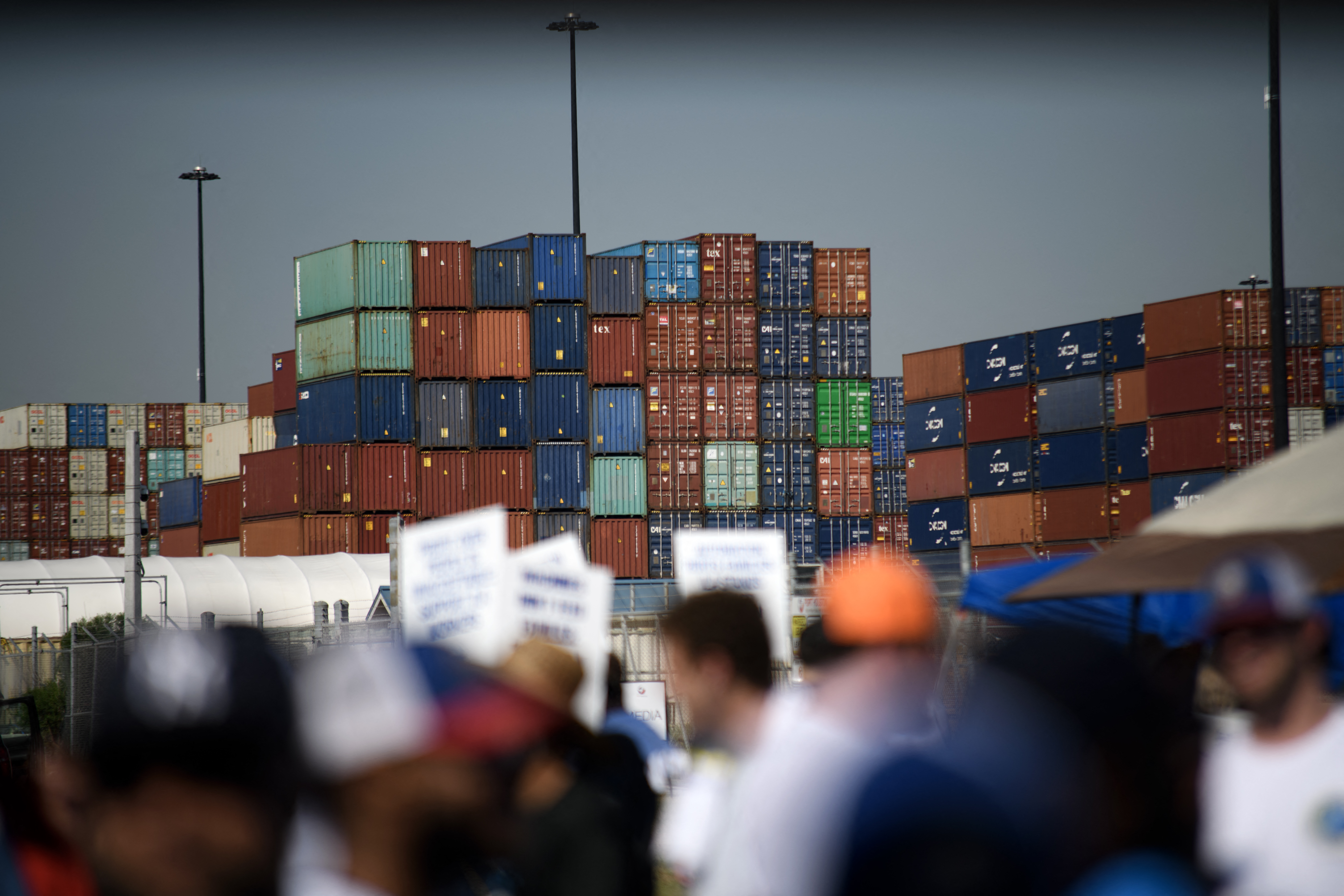Port strike averted — union credits "Trump"
The statement from the union, notably lacking any reference to President Joe Biden, serves as a last-minute embarrassment for the departing Democrat, who has consistently referred to himself as labor's best friend.

In a joint statement, the shipping industry and the union representing tens of thousands of longshore workers on the East and Gulf Coasts announced they had come to a tentative agreement on a new six-year contract. This agreement was said to avert any potential walkout that could have begun at 12:01 a.m. on January 16, just four days ahead of Inauguration Day.
The deal, which still requires ratification by the union's members, is designed to safeguard union jobs and “establish a framework for implementing technologies that will create more jobs while modernizing East and Gulf coasts ports — making them safer and more efficient, and creating the capacity they need to keep our supply chains strong.”
In a separate statement, the head of the dockworkers union, Harold Daggett, praised Trump for facilitating the agreement, remarking that Trump — who had previously criticized plans for increased automation in the industry — "gets full credit." He highlighted the president-elect's public support for the labor group following a meeting late last year.
“President Trump’s bold stance helped prevent a second coast wide strike at ports from Maine to Texas,” Daggett, the head of the International Longshoremen’s Association, added in the union’s separate Facebook statement.
The union's message, which did not reference President Joe Biden, presents a last-minute embarrassment for the outgoing Democrat, who has often claimed to be labor’s staunchest ally. It also marks a significant win for Trump, who has been working to attract union support away from the Democrats for several months.
An earlier port strike last fall, which occurred a few weeks before the November election, concluded after approximately three days, following intervention from the Biden administration and warnings from retailers and manufacturers regarding the potential economic consequences.
To prevent that work stoppage, the United States Maritime Alliance (USMX), representing shipping companies and terminal operators at major cargo ports, consented to a wage increase of over 60 percent over the duration of the contract — a remarkable achievement for dockworkers. However, both parties did not fully resolve a key issue concerning the implementation of certain types of automation at docks, including large cranes that operate with limited human interaction.
Daggett, a passionate union leader, has expressed strong concerns about the threats posed by automation to his workers, advocating for a complete ban on the technology as it takes jobs from his members.
While the parties indicated that the specifics of the agreement would not be disclosed immediately, a compromise regarding technology usage is expected to be part of it.
Trump expressed support for dockworkers in a Truth Social post last month, revealing that he had met with Daggett and his son, Dennis, the union’s executive vice president. The incoming president stated that regarding automation, “the amount of money saved is nowhere near the distress, hurt, and harm it causes for American Workers, in this case, our Longshoremen.”
The union reported that their meeting lasted two hours, and Trump also communicated by telephone with USMX officials in favor of the union.
During the October strike, both Trump and Vice President Kamala Harris sided with the ILA, advocating for American workers and criticizing the foreign-owned shipping companies dominating U.S. terminals. At that time, White House officials credited weeks of quiet discussions with both sides, along with Biden’s public comments, for creating pressure on the industry to finalize a deal.
Another strike would have posed a significant challenge to Trump’s coalition, which includes working-class voters and large businesses.
Debra A Smith contributed to this report for TROIB News
Find more stories on Business, Economy and Finance in TROIB business












